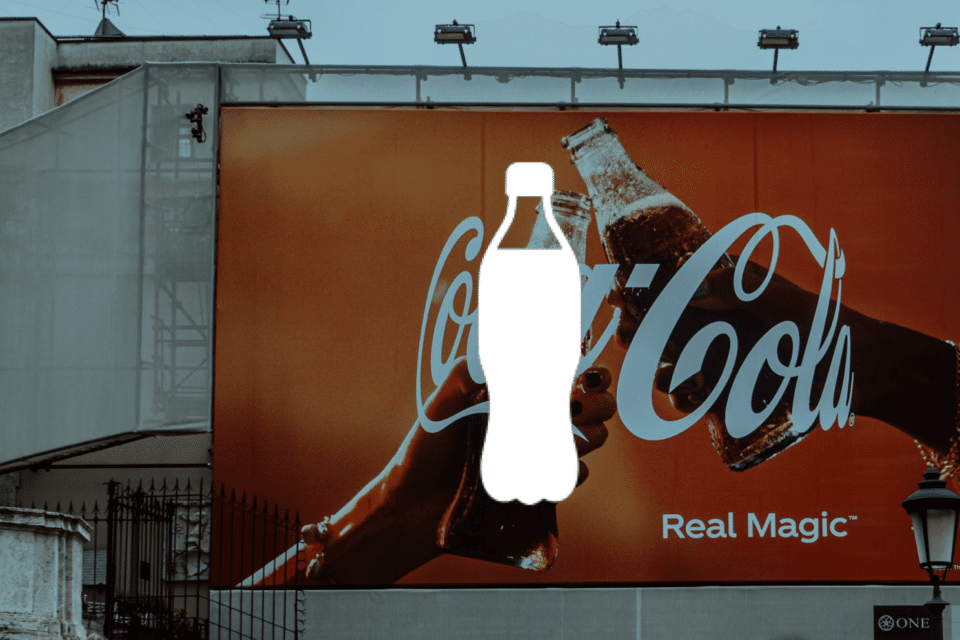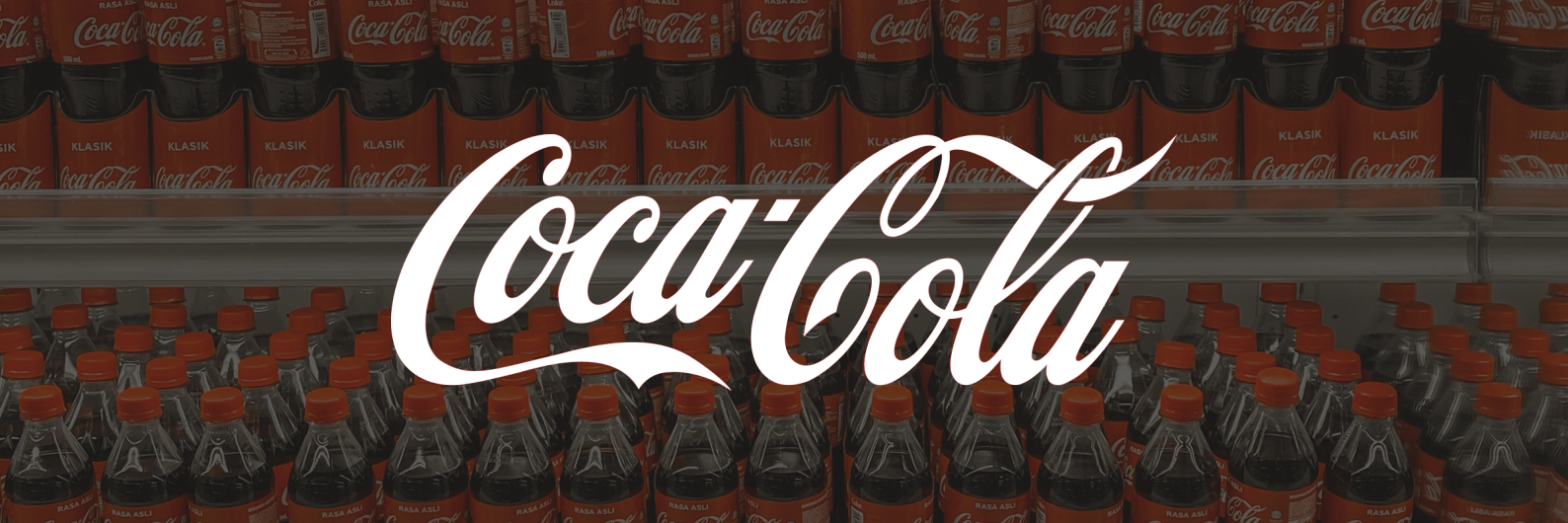KO vs COKE Stock, Which of the 2 Coca-Cola Stock to Buy?

In the sprawling universe of beverage investments, the Coca-Cola name reigns supreme, but did you know that there’s more than one way to invest in this iconic brand? Now, you might wonder which Coca-Cola Stock to buy? Here’s our KO vs COKE Stock post to help you decide which one is the best bet for you. Enter The Coca-Cola Company (KO) and Coca-Cola Consolidated (COKE)—two publicly traded entities that are intimately connected yet distinct in their investment profiles.
While KO is the global juggernaut that owns the brands and the secret formulas, COKE is the largest independent bottler in the United States, responsible for getting that fizzy goodness into cans and onto store shelves. Each offers a unique set of opportunities and risks, making the decision to invest in one over the other anything but straightforward.
Whether you’re drawn to the global scale and diversification of KO or the regional focus and operational finesse of COKE, understanding the nuances between these two can make a world of difference in your portfolio.
Coca-Cola: KO or Coke Stock
Coca-Cola Consolidated (COKE) and The Coca-Cola Company (KO) are two distinct entities within the Coca-Cola system but serve complementary roles. Coca-Cola Consolidated (COKE) is the largest independent Coca-Cola bottler in the United States. It operates in 14 states primarily in the Southeast, Midwest, and Mid-Atlantic regions. COKE is responsible for manufacturing, distributing, and marketing Coca-Cola products to retailers and restaurants in its territory.
On the other hand, The Coca-Cola Company (KO) is a multinational beverage company that owns the Coca-Cola brand and various other non-alcoholic beverage brands. It operates globally and licenses the production, distribution, and marketing of its products to various bottlers, including COKE.
While COKE focuses on bottling and distributing Coca-Cola products in its designated territory, KO oversees the overall strategy, brand development, and marketing initiatives for its portfolio of brands, including Coca-Cola. KO also engages in partnerships and acquisitions to expand its brand presence and diversify its product offerings.
It’s hard to set a winner on the KO vs Coke Stock challenge, although both companies work closely together, theyare independently managed and have their own set of shareholders. There are also huge differences between both companies, starting with their market cap.

Coca-Cola Company (KO-N): KO vs COKE Stock
The Coca-Cola Company (KO-N) is a multinational corporation that was founded in 1886. It is headquartered in Atlanta, Georgia. Coca-Cola is best known for its flagship product, Coca-Cola, which was created by pharmacist John Pemberton as a medicinal beverage. In its early years, the company struggled with profitability, but it soon became one of the most recognized and valuable brands in the world. Coca-Cola has since expanded its product portfolio to include over 500 brands, including Diet Coke, Sprite, Fanta, and Minute Maid.
The company operates in over 200 countries and territories and employs more than 700,000 people worldwide. Coca-Cola has played a significant role in the history of advertising, and its iconic red and white logo is instantly recognizable. The company continues to be a major player in the beverage industry and is committed to sustainability and social responsibility initiatives.
This is the parent company and the main global beverage manufacturer. They develop and own the formulas for a wide range of beverages, including Coca-Cola, Diet Coke, Coca-Cola Zero Sugar, and other soft drinks, as well as juices, teas, and other beverages.
- Coca-Cola Company (KO) operates globally, with products available in over 200 countries.
- Coca-Cola Company (KO) owns the recipes and concentrates.
- Coca-Cola Company (KO) produces syrup concentrate and sells it to various bottling companies, including Coca-Cola Consolidated.
- The Coca-Cola Company is a public company that has a more complex corporate structure, involving various subsidiaries and global operations.
- Coca-Cola Company (KO) generates revenue from a wider range of activities including the sale of concentrates, licensing, and partnerships.
- The Coca-Cola Company often leads in terms of product innovation and branding initiatives.

Coca-Cola Consolidated (COKE-Q) : KO vs Coke Stock
Coca-Cola Consolidated (COKE-Q) is the largest independent bottler of Coca-Cola products in the United States. The company was established in 1902 and is based in Charlotte, North Carolina. It operates in 14 states and employs over 17,000 people. Coca-Cola Consolidated distributes a wide range of beverages, including sparkling soft drinks, juices, tea, water, and energy drinks. With a diverse portfolio of iconic brands such as Coca-Cola, Sprite, Fanta, and Dasani, the company serves millions of consumers every day. In addition to its distribution activities, Coca-Cola Consolidated also operates retail stores, vending machines, and fountain sales which contribute to its overall revenue.
The company utilizes state-of-the-art manufacturing and distribution facilities to ensure the availability and freshness of its products. Coca-Cola Consolidated is committed to sustainability and community involvement, focusing on initiatives like water stewardship, recycling, and supporting local communities through grants and sponsorships. The company’s rich history, dedication to quality, and commitment to its customers have made it a leader in the beverage industry.
It is one of the bottling partners of The Coca-Cola Company, and it is primarily involved in the production, marketing, and distribution of Coca-Cola beverages within specific geographic territories. Coca-Cola Consolidated (COKE) focuses on certain regions within the United States, as allocated by The Coca-Cola Company.
- Coca-Cola Consolidated (COKE) does not own these but purchases them to produce the finished goods.
- Coca-Cola Consolidated (COKE) buys the concentrate, mixes it with other ingredients like carbonated water, and bottles or cans the final product.
- Coca-Cola Consolidated, although also a public company, is more streamlined in its operations, focusing on bottling and regional distribution.
- Coca-Cola Consolidated (COKE) primarily makes money from the sale of bottled beverages to retailers and distributors.
- Coca-Cola Consolidated mainly focuses on operational efficiency and local market penetration.
Comparing KO and Coke Stocks
When we look at KO vs COKE stock, the analysis reveals significant differences. KO is a multinational beverage company listed on major stock exchanges, while Coke operates as a small independent bottling company. In terms of stock performance, KO has a market capitalization of around $220 billion, making it one of the largest beverage companies globally. Coke, on the other hand, has a much smaller market capitalization of around $2 billion.
Due to its scope and global presence, KO stocks have a more stable performance and are less influenced by market fluctuations. In contrast, Coke stocks tend to be more volatile and more susceptible to changes in the local market. Additionally, KO consistently pays dividends to its shareholders, while Coke does not. Therefore, investors looking for a stable, dividend-paying investment option often choose KO stocks, while those seeking higher risk and potential returns may consider investing in Coke stocks.
Performance and profitability of both COKE and KO
The performance and profitability of both Coca-Cola (COKE) and The Coca-Cola Company (KO) have been strong in recent years. COKE, which is a publicly traded bottler for Coca-Cola beverages, has shown consistent growth in revenue and net income. This is primarily due to the company’s successful marketing strategies and expansion into new markets.
Similarly, KO, the parent company of COKE, has also seen positive financial results. KO has a wide range of beverage products and a global distribution network, which has contributed to its strong sales and profits. Additionally, both companies have focused on cost management and productivity improvements, leading to increased profitability. Despite facing challenges like changing consumer preferences and increasing competition, COKE and KO have demonstrated resilience and adaptability in achieving solid financial performance.
Overall, the performance and profitability of both COKE and KO have remained robust, reflecting their ability to innovate and capitalize on market opportunities.
Conclusion
Final thoughts on investing in KO or Coke stock
In summary, COKE is a specific bottler within the Coca-Cola system, responsible for serving the local market, while KO is the parent company that manages the overall brand and global operations. Together, they work in tandem to ensure the availability and promotion of Coca-Cola products worldwide.
The Coca-Cola Company (KO) is the parent entity that owns the brands and formulas, whereas Coca-Cola Consolidated (COKE) is a regional bottler and distributor.
Sources:
- Coca-Cola Consolidated, Inc. 2020 Annual Report
- The Coca-Cola Company Annual Report 2020
- Coca-Cola System – Our Business Model
- The Coca-Cola Company Dividend History
- Yahoo! Finance: The Coca-Cola Company & Coca-Cola Consolidated
Q: What is the difference between KO and Coke stock?
A: While COKE focuses on bottling and distributing Coca-Cola products in its designated territory, KO oversees the overall strategy, brand development, and marketing initiatives for its portfolio of brands, including Coca-Cola. KO also engages in partnerships and acquisitions to expand its brand presence and diversify its product offerings.
Q: Which stock should I buy, KO or Coke?
A: Both companies work closely together, but both companies are independently managed and have their own set of shareholders, although the comparison between KO (Coca-Cola Company) and Coke (Coca-Cola Consolidated Inc.) stocks reveals significant differences. KO is a multinational beverage company listed on major stock exchanges, while Coke operates as a small independent bottling company. In terms of stock performance, KO has a market capitalization of around $220 billion, making it one of the largest beverage companies globally. Coke, on the other hand, has a much smaller market capitalization of around $2 billion.
Q: What is the ticker symbol for Coke, The Coca-Cola Company?
A: Coca-Cola Consolidated (COKE) and The Coca-Cola Company (KO) are two distinct entities within the Coca-Cola system and serve complementary roles. The ticker symbol for The Coca-Cola Company on the New York Stock Exchange is KO. The ticker symbol for Coca-Cola Consolidated on the Nasdaq is COKE-Q. To learn more about which one you should buy, ready the full post.





